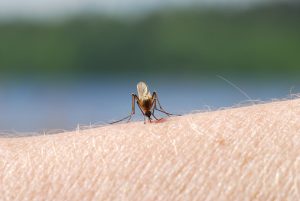 Zika virus 2016 update: Benign bacteria were found to completely block the transmission of Zika and Chikungunya in mosquitoes and scientists developed a new model to examine the role of sex in Zika transmission.
Zika virus 2016 update: Benign bacteria were found to completely block the transmission of Zika and Chikungunya in mosquitoes and scientists developed a new model to examine the role of sex in Zika transmission.
The researchers at the University of Wisconsin-Madison found that the benign bacterium known as Wolbachia pipientis can be used to block the transmission of the virus in Aedes aegypti.
Advertisement
To date, 39 countries and territories in the Americas have been affected by the Zika epidemic. It is estimated that four million people will become infected by the end of the year. So far, Zika virus has been linked to birth and brain defects. There is currently no vaccine nor a cure for Zika virus, so prevention is the only method to protect oneself from contracting the infection.
Researchers have already begun releasing the mosquitoes with the Wolbachia bacterium in countries like Colombia, Brazil, Australia, Vietnam, and Indonesia as a means to control dengue virus.
Researcher Professor Scott O’Neil said, “In two of our initial study sites in Australia, approximately 90 percent of the mosquitoes continue to be infected with Wolbachia after initial release more than six years ago.”
Wolbachia can be found in 60 percent of insects, and although it is not common in Aedes aegypti, the researchers found the bacterium can be introduced to mosquitoes in the lab and thus help prevent dengue virus transmission.
For the study, the researchers infected mice with Zika virus, which was originally isolated from a human patient, and allowed mosquitoes to feed on the mice either two or three days after they were infected. The mosquitoes either were harboring a strain of Wolbachia known as wMel or were Wolbachia-free.
Another group of mosquitoes were allowed to feed on sheep’s blood with high concentrations of Zika virus.
Four, seven, 10, and 17 days after the mosquitoes fed on Zika-infected blood, the researchers tested them for infection, assessing whether the virus had disseminated. Scientist Matthew Aliota explained, “The first site of replication for arboviruses is the mosquito midgut. It eventually leaves the midgut and is swept in their blood to secondary tissues and eventually to the salivary glands, where it replicates more and is eventually spit out.”
The researchers found that mosquitoes carrying Wolbachia were less likely to become infected with Zika virus, and those infected were unable to transmit the virus.
“A surprisingly low percentage of mosquitoes are actually capable of transmitting the virus, but given the size of the outbreak, and that we think mosquitoes are the driver of the outbreak, the results were somewhat unexpected. It just goes to show you how much we still need to understand about the basic biology of this virus,” – Aliota added.
Other studies have shown that Wolbachia can stop transmission of yellow fever virus and prevent Colombian Aedes aegypti from transmitting chikungunya virus.
As Zika continues to spread, presenting an impending threat of coming to the U.S., initiatives like this are important as they mean progress in the efforts to stop the transmission of the virus.
Zika virus and sex
Researchers at the University of Miami have developed a mathematical model in an attempt to answer the question of whether Zika virus can be transmitted through a sexual intercourse.
The goal of the math model is to delineate the possible pathways of the virus and to help determine which of those transmission routes—either mosquito-borne or sexual transmission—is most important in investigating the spread and control of the virus.
The researchers combined two modes of transmission into a set of equations and then calibrated their model to Zika epidemic rates in Brazil, Colombia, and El Salvador. The researchers used factors such as biting and mortality rates of the Aedes aegypti, as well as protection during a sexual encounter. The end result was what is called a “basic reproduction number,” which is the number of infections resulting from one initial infection in a population.
The researchers found that the average number of new infections can be traced back to a single Zika case, which comes out to two, and sexual transmission only accounts for three percent of cases.
“Our analyses indicate that the basic reproduction number of Zika is most sensitive to the biting rate and mortality rate of mosquitoes, while sexual transmission increases the risk of infection and epidemic size and prolongs the outbreak,” explained lead researcher Shigui Ruan.
“You could conceivably have somebody who was infected, and didn’t even necessarily know they were infected, carrying the disease around for a while, have some sexual encounter, and infect somebody else. I don’t think it’s been documented. But possibly, in theory, that could result in a source for an outbreak that seems to come from nowhere. So for this particular disease, because of the complexity of the transmission routes and the fact that some people can stay in the infected phase for a long time, it’s more complicated than your average disease,” concluded Chris Cosner, math professor at the University of Miami.
Related Reading:
Zika virus, dengue, and malaria risk is reduced once genetically modified mosquitoes are released in affected areas. The World Health Organization (WHO) gave a statement on deploying genetically modified mosquitoes stating, “Given the magnitude of the Zika crisis, WHO encourages affected countries and their partners to boost the use of both old and new approaches to mosquito control as the most immediate line of defense.” Continue reading…
Advertisement
Zika affects eyes in adults: Study
Previous reports found that Zika virus can affect the vision of children, but a new study has uncovered that it can also affect the eyes of adults. Doctors in Brazil found that a man infected with Zika virus developed a potentially severe eye condition. Continue reading…
Sources:
http://news.wisc.edu/benign-bacteria-block-mosquitoes-from-transmitting-zika-chikungunya-viruses/
http://news.miami.edu/stories/2016/06/doing-the-math-on-zika-and-sex.html
